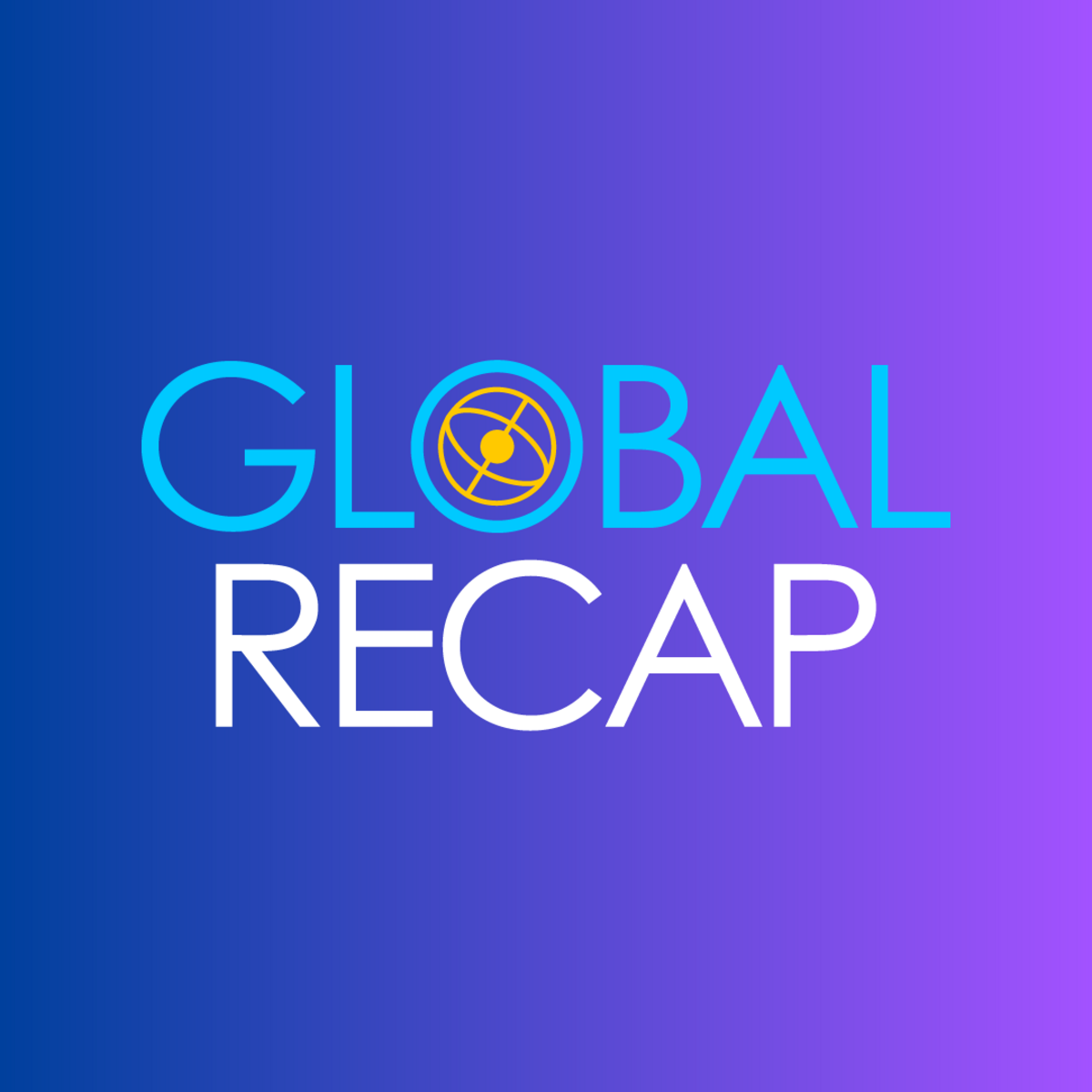
Hi Global Recap readers,
It’s funny our first story is dropping now.
I just spent hours arguing about Australia’s proposed social-media ban for teens.
I won’t rehash the whole debate, but some friends insist these laws protect kids and prevent problems before they start (sounds eerily like Minority Report).
But here’s the thing: we all grew up online with the freedom to say dumb stuff, get humiliated and destroyed for it. I still remember posting my most overconfident nonsense, getting absolutely torched, and realizing I needed develop logical coherence if I didn’t want to be burnt alive every time I hit "send."
Is it just me, or are we padding every corner of a kid’s world now—like we don’t trust them to develop basic competence or an instinct for their own survival (not physically but intellectually)?
Or more importantly... am I getting old? 😞
🇦🇺 AUSTRALIA
Teens Fight
Social Ban

Noah Jones (left) and Macy Neyland (right)
Two Australian teenagers have filed a High Court challenge seeking an urgent injunction to stop the federal government from banning under-16s from holding social media accounts from December 10. They argue the ban guts their ability to speak, organize, and debate in the places where young people actually live online.
Mechanics: Platforms like Facebook, Instagram, TikTok, Snapchat, YouTube, X, Twitch, Kick and Reddit must block under-16s from account access starting December 10 with age checks that may include ID, though not as the only method.
Plaintiffs: Noah Jones and Macy Neyland, both 15, backed by the Digital Freedom Project led by the New South Wales Libertarian MP John Ruddick.
Claim: The group says the ban strips 2.6 million young Australians of the implied constitutional right to political communication that Australia’s courts have recognized for decades.
Tension: But surprise—the Australian government casts the challenge as pressure from "people with ulterior motives" and insists it is defending parents rather than tech companies. Some important questions to ask:
Is the government truly listening to the majority, or to a minority of outspoken individuals whose views are shaped by personal and subjective experiences?
And if it’s the latter, is it fair to try to squeeze the majority into a box that the minority has created?
Timeline: The High Court will decide in early December whether it even hears the case, meaning the clock is ticking fast.
📌 Context: Australia’s first nationwide under-16 social media ban passed in November 2024 after months of debate about youth safety, platform responsibility and the future of online identity for minors.

🇬🇧 UNITED KINGDOM
Tax Rates Jump (Again)

U.K. Finance Minister Rachel Reeves
Britain is pushing through a fresh increase in dividend taxes from April 2026 and in property and savings taxes from April 2027, part of a broader supposedly push to spread the tax burden more evenly.
Shift: Finance Minister Rachel Reeves is adding 2 percentage points to basic and higher rates on property, savings, and dividend income with the same bump for the additional rate on property and savings income.
Reasoning: Reeves argues these categories have long escaped the worker-facing National Insurance payments and that the gap needs tightening.
Numbers: Dividend taxes will rise to 10.75% for basic rate payers and 35.75% for higher rate payers according to the Office for Budget Responsibility.
Impact: The government insists that most households will not see new tax bills on modest savings despite the overall upward move.
📌 Context: But is this truly about creating a “fair” and “more evenly” distributed tax system? Yes, the increase will hit those with higher disposable incomes, but the motive behind it matters.
• While the language of “equity” is being pushed, it’s equally true that Britain has been scrambling for revenue amid long-term fiscal pressures.
• And a quick look online shows how many people already feel squeezed by a maze of "hidden taxes," from inheritance tax ("the death tax") to overlapping council tax, fuel duty, VAT, and even proposals for new property-value surcharges.
• Right now, tax burden is already near postwar highs (total tax revenue forecast to reach ≈ 37.7% of GDP by 2027–28, the highest level since records began).

🇪🇺 EUROPEAN UNION
Capping Russia’s Army

Kaja Kallas
Europe’s top diplomat Kaja Kallas just blasted the idea of limiting Ukraine’s forces and instead urged that Russia curb its own military. According to her, some of the "peace ideas" circulating right now lean way too much in Moscow’s favor and risk leaving Ukraine weakened in the long run.
Pressure: A leaked 28 point US backed plan would shrink Ukraine’s army to 600,000 troops. Kyiv currently fields about 800,000.
Revision: Britain, France, and Germany floated a friendlier version that still caps Ukraine at 800,000 during peacetime.
Reversal: Kallas argued that any limits should fall on Russia instead, given its surging defense budget expected to hit 7.2%of GDP this year. Also, given that they've been poking around in Ukraine for years now, this doesn't seem to unreasonable (logically speaking). However, practically, almost impossible.
Warning: She said Western leaders should avoid the "trap" of discussing ceilings for Ukraine’s forces while letting Moscow off the hook.
Echo: The European Commission President Ursula von der Leyen backed the view that a sovereign Ukraine must not be left vulnerable.
📌 Context: The U.S. and E.U. are pushing both Ukraine and Russia toward peace talks, but many of the proposals on the table ask more of Kyiv than Moscow.
• Ukraine is often pressed to cut troop levels, limit its defenses, forget about joining NATO.
• Meanwhile, Russia faces comparatively few restrictions.
• Understandably, people are concerned that the terms would weaken Ukraine more than the aggressor it’s defending against.
But of course, such is reality.

🇺🇦 UKRAINE
Russia Funds
under Scrutiny

Speaking of Russia, Russia’s immobilized European assets just slipped to the center of the Ukraine peace talks.
Standoff: Roughly $330 billion in Russian central bank reserves are frozen across the E.U., the U.S. and their allies, with about two thirds held in the E.U., mostly via Euroclear in Belgium.
Proposal: Western negotiators are studying ways to redirect that interest to Ukraine without triggering legal blowback.
Some argue the income belongs to Ukraine.
Others say touching the principal could violate international financial norms.
But honestly, is it fair to talk about "international norms" when Russia invaded a foreign country? And not just once either.
Pressure: Ukraine wants these funds to help rebuild cities shattered since Russia’s 2022 invasion. Leaders like Ursula von der Leyen say the interest alone could generate billions per year.
Friction: However, Russia warns that any seizure of its money could bring retaliation. Several E.U. states are nervous that setting a precedent might spook foreign investors who park reserves in Europe.
Timing: Talks intensified in late November 2025 as the U.S. and E.U. try to craft a framework that can survive court challenges and keep the Ukraine negotiations moving. And we are still waiting for a solid peace plan to emerge from weeks of negotiations.
📌 Context: Since early 2022 Western governments have frozen Russian state assets as part of sanctions over the invasion. The debate now centers on whether those assets can fund Ukraine’s recovery without breaking global financial rules.

🇬🇼 GUINEA BISSAU
Officers Claim Control

The soldiers giving an address on state TV.
A group of military officers in Guinea Bissau say they have seized power and detained President Umaro Sissoco Embalo after gunfire erupted in the capital, a startling coup that halted the country’s election process.
Trigger: Shots cracked across Bissau around midday as residents fled on foot and by car, unsure who was firing or why.
Seizure: Officers later appeared on state TV to announce they had suspended the presidential vote tally and closed the borders under a night curfew.
Accusation: They claimed unnamed politicians were plotting with a drug baron to undermine the state, though no evidence has been made public.
Sweep: Government sources say the officers detained Embalo along with rival candidate Fernando Dias, former Prime Minister Domingos Pereira, and senior military leaders including Gen Biague Na Ntan.
History: Embalo, elected in 2019, has often said he survived multiple attempts on his life, though critics argue he inflated threats to tighten control.
📌 Context: Guinea Bissau has endured at least nine coups or attempts since 1974. Its islands and coastline have long made it a key transit point for cocaine moving from Latin America to Europe.

